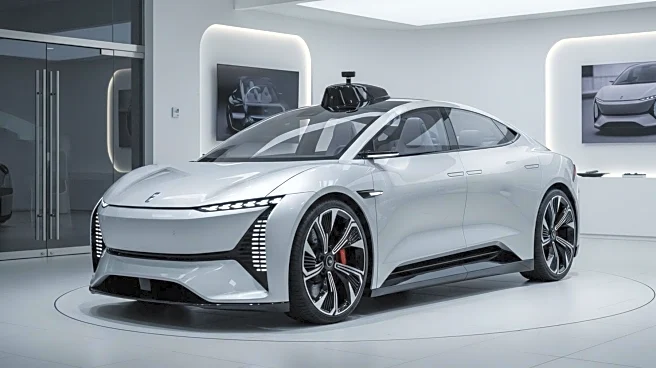What is the story about?
What's Happening?
Nissan is actively developing self-driving vehicles as part of its strategy to revitalize its auto business. The company recently demonstrated a Nissan Ariya sedan equipped with advanced AI technology, including 11 cameras, five radars, and LiDAR sensors, navigating through Tokyo's streets. This initiative is part of Nissan's efforts to compete in the burgeoning self-driving car market, which is projected to reach $2 trillion by 2030. The development comes at a time when Nissan is facing challenges due to tariffs imposed by President Trump, leading to job cuts and a new CEO appointment.
Why It's Important?
Nissan's push into self-driving technology is significant as it seeks to overcome financial difficulties and reposition itself in the competitive automotive industry. The focus on AI and autonomous systems could help Nissan capture a share of the lucrative self-driving market, potentially reversing its recent financial losses. This move also highlights the increasing importance of technological innovation in the automotive sector, which could lead to shifts in market leadership and influence future industry trends. The development may also impact global partnerships and collaborations in autonomous technology.
What's Next?
Nissan plans to make its self-driving technology available by 2027, although specific models and details are yet to be disclosed. The company will likely continue to refine its technology and explore partnerships to enhance its capabilities. Industry observers will watch for Nissan's ability to execute its strategy and compete with other automakers like Toyota and General Motors, who are also investing in autonomous technology. The outcome of these efforts could determine Nissan's future role in the global automotive market.
















